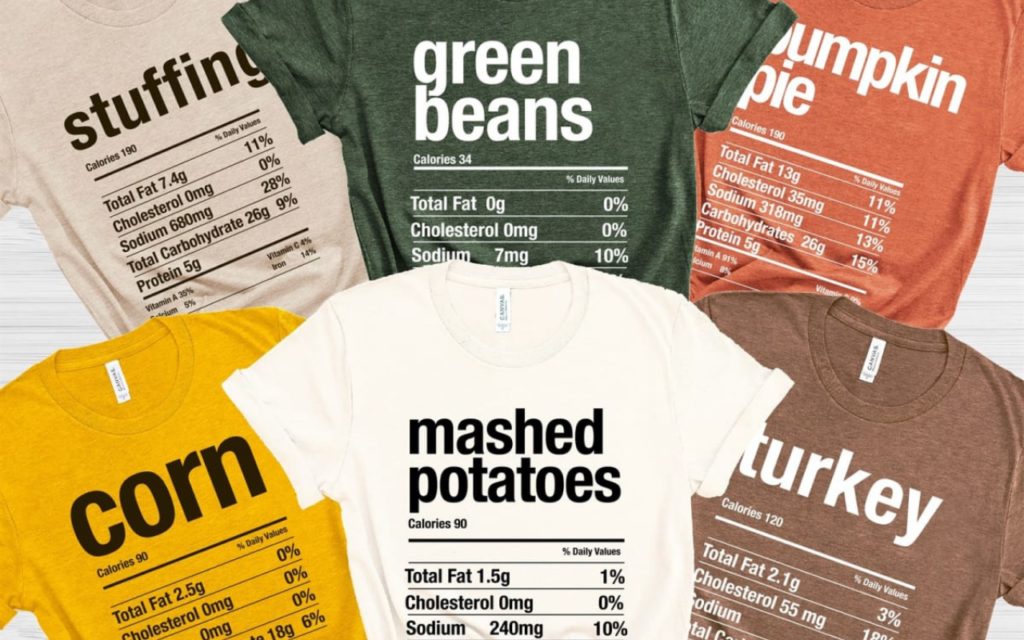Why These Thanksgiving T-Shirts Are Harmful to Eating Disorder Recovery
Editor's Note
If you live with an eating disorder, the following post and product featured could be potentially triggering. You can contact the Crisis Text Line by texting “NEDA” to 741741.
The holiday season is in full force. Christmas-themed commercials are already hitting the airwaves, retailers are discounting their leftover Halloween candy, people around the world are trying to figure out how to safely celebrate Thanksgiving with their families during the coronavirus (COVID-19) pandemic and throughout it all, diet culture is running rampant.
Thanksgiving in particular, with its focus on feasting, is a prime target for the diet culture mindset. As people plan out their Thanksgiving spreads, they’re bombarded with information about how to work off the extra Thanksgiving weight, replete with calorie counts and diet advice. This holiday-specific weight-loss culture has even seeped into Thanksgiving-themed clothing — online retailer Jane sells a variety of Thanksgiving-themed T-shirts featuring the calorie counts for every popular Thanksgiving food imaginable, right down to the whipped cream that graces our pumpkin pie.
But while the company proclaims, “Wear the nutrition facts [of Thanksgiving dishes] LOL!,” there’s nothing even remotely laugh-worthy about the fact that people are genuinely content to wear diet culture on their cotton-blend sleeves. Not only do similar types of shirts flood countless other Internet retail sites and ingratiate children and adults alike to the dangerous mindset that Thanksgiving dinner must be “sweated off” later, but they’re also detrimental to those in eating disorder recovery.

People with eating disorders, particularly those who are actively in recovery, work hard to unlearn the societal messages that may have contributed to their eating disorders, but seeing a calorie count on a holiday rife with triggers could rapidly undo their progress. Many people who live with eating disorders habitually engage in calorie-counting and obsess over how they’ll force unwanted calories out of their bodies. No matter how far into recovery a person with an eating disorder may be, seeing nutritional information could bring back old memories of difficult Thanksgivings past — and old, disordered habits.
So this year, instead of stocking up on matching diet culture-glorifying T-shirts for the whole family, learn how to support your family members who struggle with eating disorders or disordered eating habits. Check-in when you see someone struggling with their Thanksgiving meal. Remind your family and friends that Thanksgiving dinner is meant to nourish our bodies and emphasize that no particular type of food is “bad” for us. Gently encourage your loved ones to steer clear of weight, calorie or exercise talk at your Thanksgiving celebration. And of course, educate your family about why they shouldn’t support retailers whose products promote diet culture, especially during the holiday season.
This Thanksgiving, just like every other, the Internet is rife with “calorie count” T-shirts and other apparel that feeds into diet culture and harms people with eating disorders. Don’t buy these shirts, no matter how “cute” they may look, because when you do, you buy into the harmful idea that everyone should know how many Thanksgiving calories they consume. Strive to make this Thanksgiving free of calorie-counting, weight-loss talk, and diet plans. Your loved ones with eating disorders will thank you for making your Thanksgiving table safe, body-positive and trigger-free.
Images via Jane

